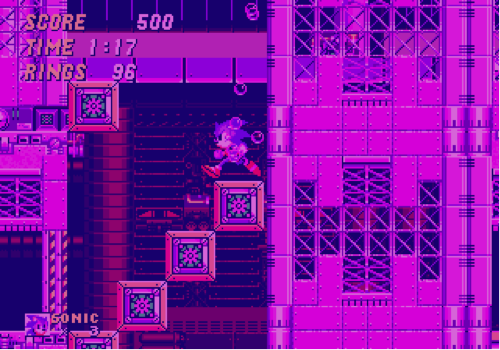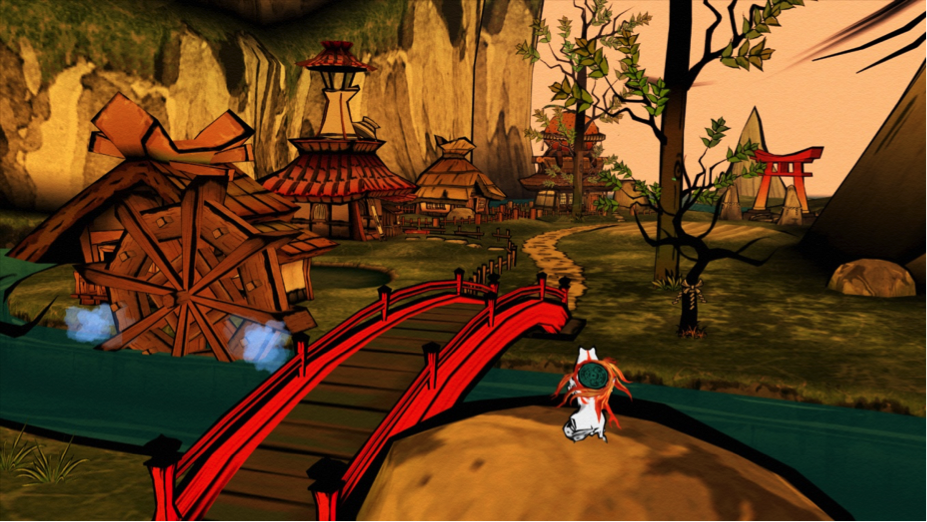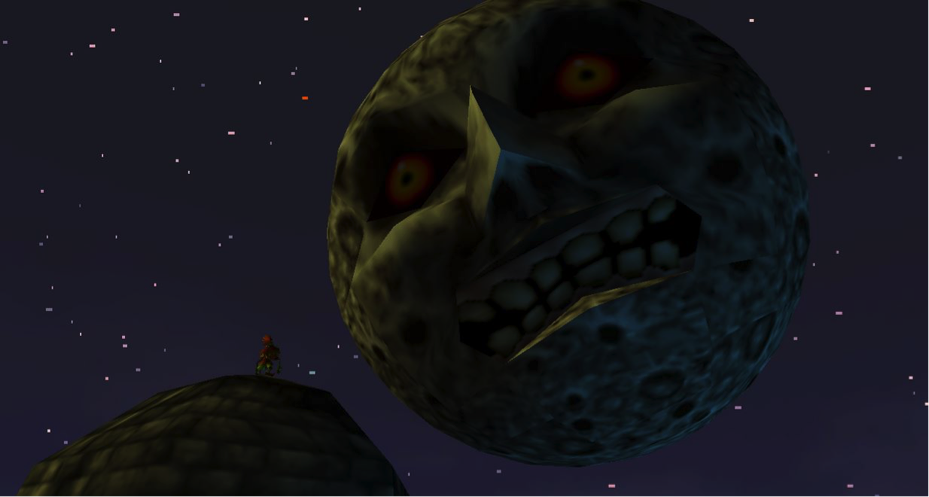Writer/Gamer Q&A: Brandon Amico
Cartridge Lit
Up next in our contributor Q&A series, we have Brandon Amico, the man behind two poems we published all the way back in August: “Eve of the Carnival” & “Gunpowder Mask.”
Brandon’s poems have appeared or are forthcoming in The Baltimore Review, The Carolina Quarterly, Hayden’s Ferry Review, Hunger Mountain, Phoebe, Tupelo Quarterly, and more. He can be found on Twitter at @amicob and online at www.brandonamico.com.
Cartridge Lit: What games are you playing right now, if any?
Brandon Amico: I’m not, because I’m catching up on all the reading I’m NOT going to be doing when the new Super Smash Bros. comes out in October. I fully expect it to eat the coming season of my life, if not squander any potential poetry career for me entirely. Okay, that’s a lie, I’m about to go download Flower on my brother’s PS3—he’s a hardcore gamer, puts me to shame—because I only got to play it briefly in the past and it was beautiful. [Ed. note: Brandon answered these questions many months ago, and we’ve only got around to publishing them now, so we’ll see if we can get an update on how badly Super Smash Bros. has squandered his efforts to be a poet in the last few months.]
CL: What was your first video game system? Did you love it or hate it or feel something completely different about it?
BA: We had a Sega Genesis at the house—or as we and I think everyone else called it, just the “Sega”—and my goodness, I was hooked. Sonic 1 – Knuckles were favorites, as was Ms. Pac-Man, but we also had some obscure games like Phelios and Mystic Defender. And, given that I was I think around 5 or 6 at the time, we also had those horrific games that children want because of the characters—Aladdin, The Berenstain Bears’ Camping Adventure, Toy Story, Power Rangers—you know, that cardboard-thin, repetitive dreck that we simply could not stop playing. I’d also like to point out that I’m pretty sure Sonic 2 scarred me for life in regards to water, and water levels in video games. That part in stage 2, Chemical Plant Zone, where the water is rising and you have to navigate Sonic through a narrow corridor of moving cubes or else drown? Yeah, that feeling of being stranded, a kind of claustrophobia, still visits me when I’m out on a boat or even in other video games—it’s strange, but it’s a very real anxiety I feel when, say, looking out around the waters in Majora’s Mask’s Pinnacle Rock and seeing nothing but murky water in every direction…
CL: Most nostalgia-laden memory from your video game history?
BA: The Nintendo Entertainment System at my grandparents’ house. While the Genesis was the first system I owned, playing the NES with my siblings/cousins was my first foray into gaming, the first time I touched a game pad. Everything around that system is steeped in nostalgia for me—the NES was in the upstairs bedroom where my mother and aunts grew up, in fact. The floor was wood and creaked through the old house, there were a few posters back from when posters just started being a thing: I distinctly recall one depicting the old New England Patriots logo and another a drawing of a baby seal on a soft blue backdrop (as if nostalgia-riddled memories weren’t already soft enough around the edges).
But the games—they were well equipped over there. Mario/Duck Hunt of course, Mario 3 (the best), Ninja Gaiden, Blades of Steel, Zelda (the gold cartridge!), and the Tiny Toons games were some of our favorites. I still remember that my Aunt Dawn, the youngest and I’m pretty sure the reason all of those games were there in the first place (as these games predated us), was the only person in our family ever to beat the original Zelda—she even left behind her map of the overworld that came with the game, carefully marked where all the levels and secret burnable bushes and bombable walls were.
CL: Care to list your top five games?
BA: Preface: Yes, I’m a total Nintendo nerd. I’ve enjoyed plenty of other, non-Nintendo games, and I know many great ones are being made outside of this one company’s platforms. That said, Nintendo was my first game-love, and given that adult life leaves me limited amounts of time to play games, I choose to spend most of that limited time on Nintendo games. So this list will be skewed in Nintendo’s direction.
1. Zelda: Majora’s Mask
2. Zelda: Skyward Sword
3. Super Smash Bros. Brawl
4. Jet Set Radio
5. Pokémon Gold/Silver
Postface: Okay, I know I’m going to catch some flack for not only putting Majora’s Mask above Ocarina of Time, but not including OoT on here at all—well, send it my way and I’ll debate with you all day. OoT was terrific and paved the way for a ton of great gaming, both Zelda and not—but Majora’s Mask was huge and astounding, and if you ask me it was just like OoT but with a ton more. It was also a way more haunting and beautiful story/concept. (If they had asked me for my top 10, there would be tons more Zelda on here—OoT, Wind Waker, and possibly the new one, Link Between Worlds.)
CL: How has your writing life interacted with your gamer life? Has one inspired or influenced the other?
BA: I do think that my gaming life—a huge part of how I spent my time up until high school—did influence my writing, even if it took me awhile to realize that it did have an impact. For one, I am a visually inclined person, and this definitely translates into my poems but was definitely something in my aesthetic that became, how would I say—tweaked?—after being groomed by the visuals and movements and patterns of video games. Additionally, I find myself pulled toward accumulation, saturation, bombast, and overlap, in language as well as image—looking back at my gaming history, it’s no surprise that I was quite so taken with games like the Jet Set Radio series and Okami, both visually striking and gorgeous games.
Jet Set Radio still remains a favorite—it is unique, enjoyable, and is positively dripping with style, visually and otherwise. I still listen to the soundtrack. The game was just plain different, and it was so full of positive, bouncing energy—the music was funky and fun, it’s one of the most colorful things that exists in the world, and the objectives and scenes were way out of the ordinary—in many ways the game was just bizarre. I love that about it, and I love that about poetry.
Also cel-shaded and striking—Okami. Though of course, where Jet Set Radio fed my inner nerd for all things futuristic, skating and tagging in a neon-drenched mega-city to some high-energy beats, Okami spoke to the romantic in me, that part of me that sometimes feels overwhelmed and wants for some life that’s simpler, more in touch with the nature, more interconnected. I think this is the same urge that leads so many writers to depict the American West and the farming life in such romanticized terms (though sometimes to the detriment of authenticity, often becoming a caricature), but again, the difference in this case was that the game is so visually engaging; it was laid out before me in thick, bold strokes of color that it captured more of the essence of one’s yearned-for relation to nature than the actual experience itself. Both Okami and Jet Set also, in two very different ways, fed my interest for Japanese culture and mythology, for their aesthetic and sense of art and human experience.
And, of course, Majora’s Mask was huge for me. I never realized the degree with which it embedded in my psyche until replaying the game recently—if there’s a better demonstration of a video game as literature, I don’t know of it. The game is wide, emotionally charged, and dark as hell. Seriously—there are people you can find hidden around the world, especially on the third day (when the giant, terrifyingly-faced moon is about to crash into the town), who are just curled up in a corner and crying and begging the gods not to let them die. The concept of repeating the same three days over and over, where the only meaningful change happens to the protagonist, is both interesting and heart-breaking; you can spend most of those three days trying to reunite two lovers, and see their lovely rediscovery of each other (as they then together wait for death from above a few hours later, natch), only to realize when you spin the clocks back, as you must, they’ll be lost to each other yet again. Come on, that’s freaking beautiful, and painful, like so much literature is. I could go on and on about all the little gems of moments in this game, the overarching themes, &c., but I shall digress.
CL: Any tips for how others out there can balance a writer’s life and a gamer’s life?
BA: Nope, in fact I’d like some myself—my gaming life has nearly been nonexistent since high school, which makes me a little sad. I try to pick up a new game every now and then, but time is generally against my gaming habit.
CL: What novel would you like to see turned into a game? What genre would it be? How would it play?
BA: Mark Z. Danielewski’s House of Leaves, which would have to be some bizarre and maddening virtual reality game. But if someone could actually pull that game off, can you imagine how intense and exhilarating an experience that would be? Good luck to the person making it, though.
CL: If someone made a game about your life, what genre would it be? How would it play?
BA: Virtual reality, as well—it would be the player watching me read poetry and work at a computer for my day job. It would play terribly.




